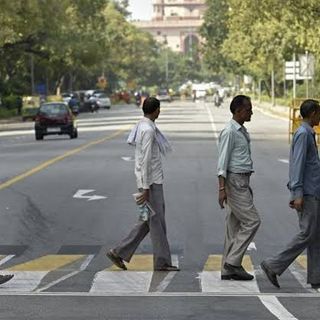
Policies Aimed at Cleaner Air Result in Better Health Almost Immediately: Study
“We knew there were benefits from pollution control, but the magnitude and relatively short time duration to accomplish them were impressive,” the lead author says.

The news has been full of reports about the dire effects of air pollution on human health. Poor quality air has been linked to a variety of cancers, heart and lung diseases, cognitive delays, decreased fertility, hair loss, mental health conditions, low mood, and much more. Now, however, there’s a ray of hope: A review of policies to curtail air pollution as well as population-level health statistics suggests cleaner air can yield immediate and drastic health benefits.
“We knew there were benefits from pollution control, but the magnitude and relatively short time duration to accomplish them were impressive,” lead author Dr. Dean Schraufnagel, of the American Thoracic Society, said in a statement. “Our findings indicate almost immediate and substantial effects on health outcomes followed reduced exposure to air pollution. It’s critical that governments adopt and enforce [World Health Organization] guidelines for air pollution immediately.”
Some of the policies examined include national smoking bans, clean vehicle fuel policies, clean cookstove policies, traffic regulations, and the closures of metal manufacturing factories.
National smoking bans seem particularly effective; tracking population health data from the first week after Ireland prohibited smoking, researchers found all-cause mortality rates dropped by 13%, ischemic heart disease rates dropped by 26%, stroke rates dropped by 32%, and chronic obstructive pulmonary disease (COPD) rates dropped by 38%. Interestingly, non-smokers’ health improved the most following the ban.
Related on The Swaddle:
Air Pollution Is Shortening the Lifespan of South Asian Kids
The report, published in the Annals of the American Thoracic Society, also highlighted the effectiveness of traffic regulations aimed at curbing air pollution. It tracked the related health effects of 17 days of such regulations during the 1996 Olympics in Atlanta, Georgia, U.S. In the four weeks after the 17-day regulation, consultations for children’s asthma dropped by 40% and emergency visits and hospitalizations for the same problem dropped by 11% and 19% respectively.
A 13-month closure of a steel mill (steel factories produce particulate matter in the form of minerals, heavy metals, and hydrocarbons) in the U.S. was associated with a halving in serious cases of asthma and lung infections such as pneumonia and bronchitis. School absences reduced by 40%. And the daily mortality rate decreased by 16% for every drop of 100 μg/m3 PM10 in the air.
Policies in Hong Kong, Japan, and Nigeria are also highlighted for the health benefits that followed.
The report also makes the case for the economic benefits of such policies — concern over which is often the stumbling block to seeing them passed and implemented. It specifically points to the success of the Clean Air Act in the U.S. Since its enactment 25 years ago, the presence of major particulate pollution in the air has fallen by more than 73%, while the country’s GDP grew by more than 250%. The report cites estimates from the U.S. Environmental Protection Agency suggesting the population-wide health benefits surpassed cost 32-to-1 and saved the country US$ 2 trillion.
“Although published studies have focused primarily on high-income countries, similar policies in low- and middle-income countries may be even more effective,” the researchers write.
The report calls out India for its air pollution problem and takes a ‘wait-and-see’ tone for the local and national policies intended to curb it.
“Air pollution is largely an avoidable health risk that affects everyone. Urban growth, expanding industrialization, global warming, and new knowledge of the harm of air pollution raise the degree of urgency for pollution control and stress the consequences of inaction,” Dr. Schraufnagel said.
Liesl Goecker is The Swaddle's managing editor.
Related


All the Types of Headaches and What Causes Them
